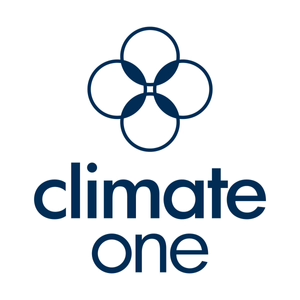
Cindy Klein-Banai - Associate Chancellor for Sustainability at University of Illinois Chicago
06/07/18 • 30 min
Previous Episode

Catherine Kummer - Senior Director for Green Innovation at NASCAR
As Senior Director of Green Innovation at NASCAR, Catherine directs development, adoption, and implementation of sustainability strategies across the number one spectator sport in the United States. She integrates ESG initiatives across the industry with a program that in just under a decade has grown into one of the most visible sustainability programs in all of sports. Working with partners from the business sector, government and non-profit organizations, she also develops and coordinates programs with NASCAR sponsors and industry that advance sustainability objectives including food donation, recycling, clean water protection and the offsetting of carbon emissions for all of NASCAR's national series racing, employee air travel and quarterly partner summits. The Green Innovation platform provides both societal and business value, but also operates as a brand enhancing business. Catherine Joins Sustainable Nation to Discuss: Sustainability in professional sports NASCAR's commitment to GHG, energy and waste reduction Advice and recommendations for sustainability leaders Catherine's Final Five Question Responses: What is one piece of advice you would give other sustainability professionals that might help them in their careers? I would say be bold. That's commonly said, but I think it's important in sustainability. Be passionate, but be aware. And what I mean by being aware is ensure that you know who you're speaking to when you're speaking to them. Know your audience. When you're going in to pitch these ideas, know what drives them, what's going to result in them making an operational change or a culture change or whatever that may be. Just make sure that you're aware and you're humble in that approach. That is huge. I would also say that keeping the big picture in mind, always, has proven to be really helpful for me and taking one bite at a time. Do that well. Take that one bite. Make sure that you are crushing that one bite. Own it. Do your best to not spread yourself too thin because there's so much to be done, but identify where you can make the most impact and do it. What are you most excited about right now in the world of sustainability? Materials innovation, biomimicry, that all interests me a tremendously. More specifically though, how it can be advanced through sport. I'm excited to see how that rolls out. I'm excited to see how sport can be the catalyst for these new innovations, for these new technologies or these new mindsets, quite frankly. The opportunity to use sport to drive all of it. I think it's fascinating and I really feel like we're on the cusp of something so tremendous. The leagues are beginning to rally together. I worked directly with Omar Mitchell at the NHL and with Paul Hamlin at MLB, and those programs, they are doing amazing work as well. Coming together to look at how we can drive this impact, and we're so much more powerful if we all row in the same direction. I am probably most excited about how those relationships will continue to develop over time and what that will mean from an impact standpoint across the board when we look at these issues, whether it be social issues or environmental issues, economic issues, whatever that may be. That's really compelling and that's what gets me excited when I walk into this office everyday. What is one book you would recommend sustainability leaders read? I've thought about that one and actually spent probably more time than I should have looking at my bookcase. You can take it back to Silent Spring to know the foundation of why we're here. I think that is really, really important. Natural Capitalism, Hunter Lovins, and Amory's Reinventing Fire. I mean those are staples as well, but I gotta be honest. I find myself being more of a podcast person these days. So Greenbiz 350, How I Built This, not necessarily a sustainability podcast, but one that I just think from a business perspective is crazy inspiring for me. And then the Rachel Hollis podcast is one that I also listened to. As a female in the sports world, I think it's super important to continue to push yourself and inspire yourself and to surround yourself by other individuals like minded females specifically that are also doing the same thing. So yeah, this is probably the hardest question that you've asked me. I just have so many thoughts on things that folks should read and dive into. What are some of your favorite resources or tools that really help you in the work that you do? I've been fortunate to have a network of individuals that are just crazy knowledgeable in this space. I mentioned Allen Hershkowitz who has been a mentor for me for quite some time now. Joel Makower and the , we are members of that organization. The is doing tremendous work. is just kind of the global version of the Green Sports Alliance. Again, the networks that you have and learning from others that are also doing and have done this work for years and years and years. I find those to be the...
Next Episode

Nils Moe - Managing Director of the Urban Sustainability Directors Network
Nils Moe currently serves as the Managing Director of the Urban Sustainability Directors Network (USDN). In this role, Nils oversees the day-to-day operations of this rapidly evolving North American network of over 185 member communities representing more than 84 million residents. Nils is an experienced, accomplished change agent with over 15 years of successful strategic business development, organizational leadership, and client building. Previously, he served as the Mayor’s Sustainability Advisor for the City of Berkeley, where he helped to implement Berkeley’s Climate Action Plan and worked with the city staff and the community to reduce their GHG emissions. He also has worked as a professor of Organizational Psychology at San Francisco State University, co–founded two values-driven non–profits, and worked in the private sector as a management consultant, specializing in program evaluation of non-profits and 360–degree feedback for Fortune 100 companies. Nils Joins Sustainable Nation to Discuss: Cities leading the way to a sustainable future The power of networks and collaboration in sustainability Local government leading on climate in the absence of federal leadership Trends in urban climate and sustainability work Advice and recommendations for sustainability leaders Nils' Final Five Question Responses: What is one piece of advice you would give other sustainability professionals that might help them in their careers? I think I'm a bit biased, but going back to this notion of my parallel path between the social psychology realm and the environmental science realm, I think our field can be really technical, talking about renewable energy, land use policies, transportation analysis, which is a critical skillset, but something that can't be underestimated, I think is the power of the soft skills in our work. One of the crosscutting challenges that our cities are facing is this notion around human behavior and behavior change. At the end of the day, much of the work that we're doing is about relationships, influencing people, empowering folks to make some key and critical changes to habits that have been forming over their life. So, how can we really do a better job of leveraging some of the key social sciences out there to help us align our work, empower folks to make those key changes? So I think some of the leadership skills, learning a little more about social sciences is sort of a key piece of the puzzle. What are you most excited about right now in the world of sustainability? We're entering our 10th year now. We built this amazing, connected membership. All of these members are doing amazing work in their local municipalities, local counties. Now what does it look like to do this at scale? So our membership have charged us to look at, is there a menu list of initiatives that we can agree on as a membership of 190-plus cities that we feel have the potential to provide strong impact over the next three years? So I think, in short, it's the power of the aggregate. What does it look like to take on these initiatives at scale with large groups of cities that could really start to move the needle and move markets? What would it look like for 150 cities to commit to procuring renewable energy? How would that drive the market, the transaction costs, the energy costs? What would it look like for 50 cities to get together and go out to their auto manufacturing industry and say, "We want an electric vehicle, light duty truck with these specs." One city isn't going to get the attention of an auto manufacturer, but 50 cities will. So I think it's this power and strength in numbers that is really exciting to me. What is one book you would recommend sustainability leaders read? I don't want to sound like a homer here, but a checkout the Guide to Greening Cities. Excellent book by Julia Parzen, Sadhu Aufochs Johnston, and Steven S. Nicholas. It's five years old now, but it still does an amazing job of talking about the challenges, the opportunities, the successes from the city level. S What are some of your favorite resources or tools that really help you in the work that you do? Yeah, check out our USDN website. We've got some public pages around the innovation products that are coming out from our cities which are really intriguing. This aggregate high impact practice work will be on there in the fall of 2018. We've got a great series of equity training videos, Equity 101, that I think could be beneficial to folks at large. Innovation Network for Communities has some great work on their website. We have Paul Hawkins speaking at our annual meeting in San Diego last year. So I think Drawdown is a really compelling story in a way to prioritize the actions that are ahead of us. We're looking forward to Hunter Lovins', Finer Future, which is coming out in the fall. And we work with some amazing partners. The list is really long, so it's tough to choose just a few, but Eco America - Let's Talk Climate. A way to...
If you like this episode you’ll love
Episode Comments
Generate a badge
Get a badge for your website that links back to this episode
<a href="https://goodpods.com/podcasts/sustainable-nation-515596/cindy-klein-banai-associate-chancellor-for-sustainability-at-universit-67373511"> <img src="https://storage.googleapis.com/goodpods-images-bucket/badges/generic-badge-1.svg" alt="listen to cindy klein-banai - associate chancellor for sustainability at university of illinois chicago on goodpods" style="width: 225px" /> </a>
Copy




